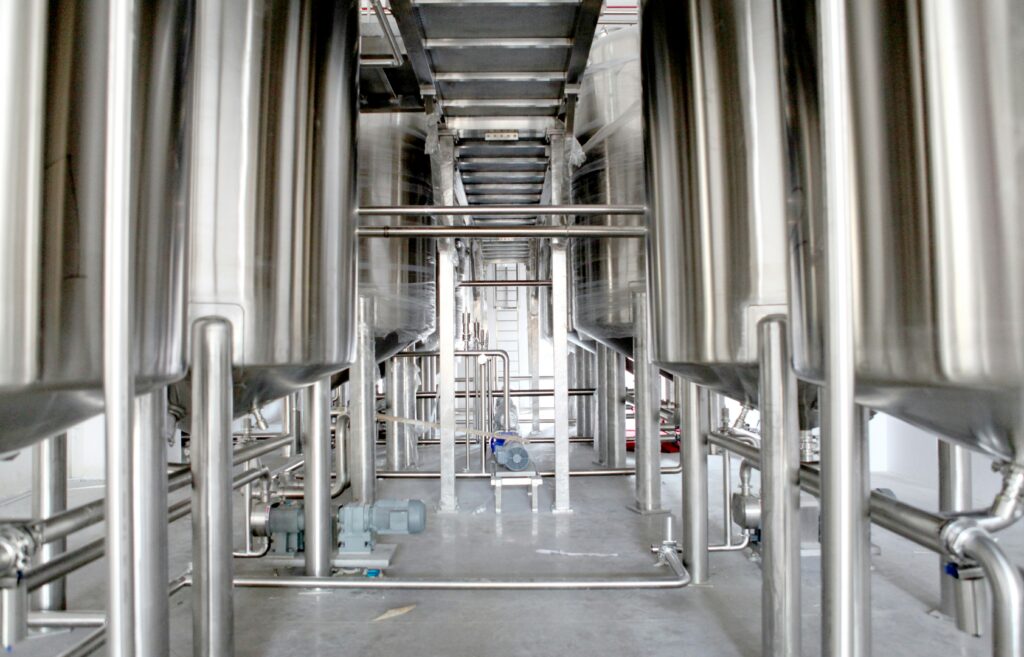The Role of Industrial Pumps in Production Efficiency
Industrial pumps serve as the lifeblood of manufacturing systems. They transfer liquids, slurries, and semi-solid materials between stages of production, ensuring that each process step receives the correct volume and flow rate. Whether it’s circulating cooling water through heat exchangers or moving process fluids in a closed-loop system, pump performance directly affects throughput and product quality.
In automated plants, pumps are increasingly integrated with sensors and variable frequency drives (VFDs) that allow for real-time flow control. This not only saves energy but also helps manufacturers meet tight tolerances and minimize product variation.
Supporting Safety and Environmental Compliance
In many industries, pumps are critical to environmental and safety management. Refrigeration warehouses rely on hermetically sealed centrifugal pumps to prevent hazardous leaks. Wastewater systems use rugged, corrosion-resistant pumps to manage effluent safely before treatment or disposal. In food and beverage facilities, pumps made from stainless steel help ensure hygiene compliance and product purity. Hot oil pumps work with frying oils to 425 degrees Fahrenheit to produce tasty fries and chips.
Advanced sealing technologies such as Cornell’s Cycloseal® system help minimize leaks and extend pump life—reducing maintenance costs and supporting safe, continuous operation in demanding environments.
Energy Efficiency and Cost Control
Pumps account for a significant share of industrial energy consumption—often as much as 25–30% of total motor-driven energy use. Optimizing pump selection, impeller design, and drive configuration can dramatically reduce operating costs. For example, pairing a Cornell pump with a high-efficiency electric motor or VFD allows manufacturers to match output to process demand, cutting unnecessary energy draw during low-load periods.
High-efficiency designs, such as double-volute casings and precision wear rings, also reduce internal recirculation losses and improve hydraulic performance—helping facilities meet sustainability and cost-saving targets.
Reliability in Harsh Environments
Manufacturing facilities often operate under tough conditions: high temperatures, abrasive materials, corrosive fluids, or continuous duty cycles. Pumps used in these applications must withstand mechanical wear and chemical attack without compromising performance. That’s why Cornell offers pumps in durable materials like high-chrome white iron, CD4MCu stainless steel, and ductile iron—each chosen to meet specific process demands.
For high-solids slurries or abrasive applications, features like replaceable liners, dynamically balanced impellers, and heavy-duty shafts ensure long service life and reduced downtime.
The Future: Smart Monitoring and Predictive Maintenance
As manufacturers embrace Industry 4.0, pumps are evolving from mechanical components into intelligent assets. IoT-enabled systems like Cornell Co-PilotTM can collect vibration, temperature, and pressure data to predict failures before they happen. By integrating pump monitoring into plant automation systems, operators gain visibility into performance trends, energy use, and maintenance needs—leading to fewer unplanned shutdowns and more efficient production planning.
Conclusion
From the smallest sanitary pump to the largest slurry-handling unit, industrial pumps are essential to maintaining safe, efficient, and productive manufacturing operations. As technology advances, the combination of robust mechanical design and smart digital control will continue to push performance boundaries—ensuring that pumps remain the beating heart of modern industry.



